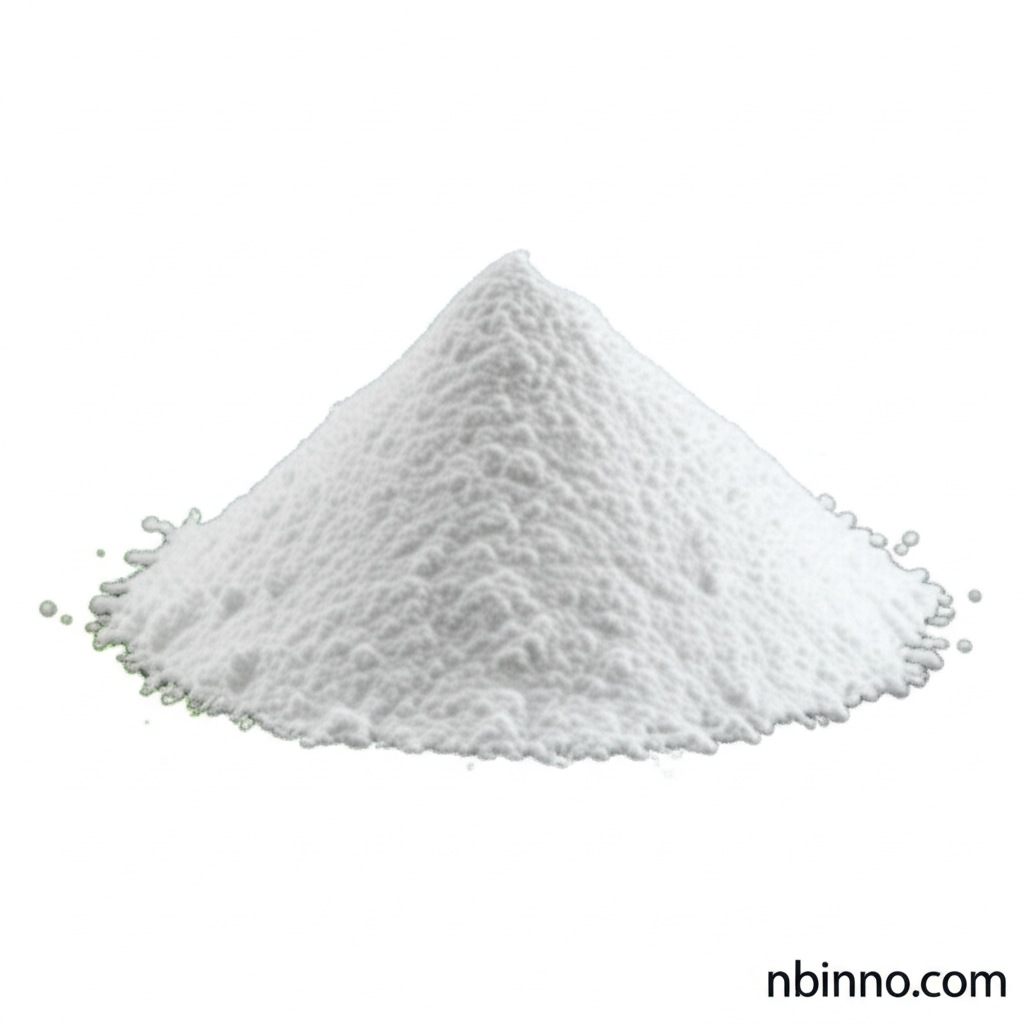Erlotinib Hydrochloride: A Targeted Approach to Cancer Therapy
Potent EGFR tyrosine kinase inhibitor for non-small cell lung cancer and pancreatic cancer treatment.
Get a Quote & SampleProduct Core Value

Erlotinib Hydrochloride
Erlotinib Hydrochloride (CAS 183319-69-9) stands as a critical pharmaceutical intermediate, primarily recognized for its role as a potent and selective Epidermal Growth Factor Receptor (EGFR) tyrosine kinase inhibitor. This compound is instrumental in the targeted treatment of advanced non-small cell lung cancer (NSCLC) patients with specific EGFR gene mutations, offering a precise mechanism to combat tumor progression. Additionally, it finds application in combination therapies for pancreatic cancer, demonstrating its versatility in oncological treatment strategies. By interfering with the growth signaling pathways of cancer cells, Erlotinib Hydrochloride facilitates their eventual destruction, marking a significant advancement in antineoplastic therapy.
- Unlock targeted cancer therapy options with Erlotinib Hydrochloride, a potent EGFR tyrosine kinase inhibitor.
- Advance your research into non-small cell lung cancer treatment by exploring the efficacy of Erlotinib Hydrochloride.
- Investigate novel pancreatic cancer therapies using Erlotinib Hydrochloride as a key pharmaceutical intermediate.
- Understand the impact of EGFR gene mutations on cancer progression and therapeutic responses with Erlotinib Hydrochloride.
Key Advantages
Targeted Efficacy
Erlotinib Hydrochloride delivers targeted action against cancer cells with specific EGFR mutations, minimizing collateral damage to healthy tissues, which is crucial for EGFR tyrosine kinase inhibitor research.
Therapeutic Versatility
Its application in both NSCLC and pancreatic cancer highlights its broad utility as a pharmaceutical intermediate for developing advanced cancer treatment strategies, supporting research into pancreatic cancer therapy.
Mechanism of Action
By inhibiting EGFR phosphorylation, Erlotinib Hydrochloride effectively disrupts cancer cell proliferation and survival pathways, providing valuable insights for drug development in oncology research.
Key Applications
Oncology Therapeutics Research
Erlotinib Hydrochloride serves as a vital compound for researchers investigating new therapeutic avenues for various cancers, particularly those driven by EGFR mutations, aiding in the discovery of effective EGFR gene mutation treatment protocols.
Pharmaceutical Development
Its role as a pharmaceutical intermediate makes it essential for the synthesis of advanced antineoplastic drugs, supporting the continuous innovation in cancer therapy.
Clinical Oncology Studies
Clinicians and researchers utilize Erlotinib Hydrochloride in studies focusing on patient response to targeted therapies, contributing to the refinement of non-small cell lung cancer treatment.
Drug Discovery & Design
The compound's specific mechanism of action provides a benchmark for designing new kinase inhibitors and understanding resistance mechanisms in cancer, crucial for developing future targeted cancer drug development.
